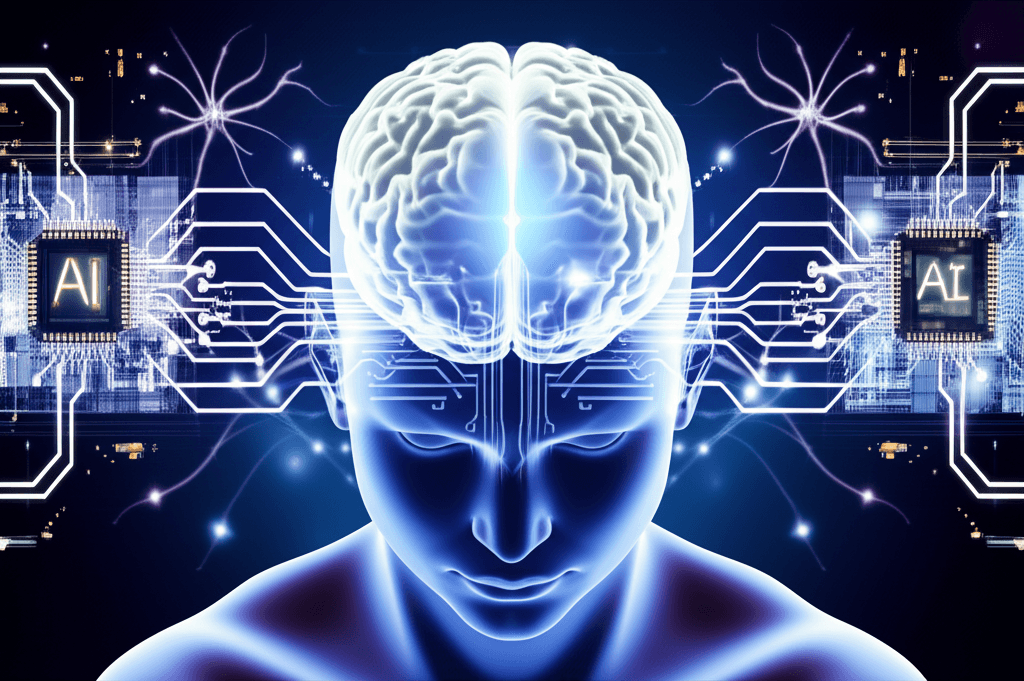OpenAI Fuels BCI Merge Labs, Igniting Musk Rivalry for AI-Human Future
OpenAI's Sam Altman challenges Elon Musk's Neuralink, investing in Merge Labs to accelerate human-AI convergence.
August 13, 2025

OpenAI is reportedly preparing a significant investment into Merge Labs, a new brain-computer interface (BCI) startup co-founded by OpenAI's chief executive, Sam Altman. This move signals a major new front in the rapidly advancing field of neurotechnology and places OpenAI in direct competition with Elon Musk's well-established BCI company, Neuralink. The venture, which is said to be seeking $250 million in funding with a substantial portion expected from OpenAI's venture capital arm, is aiming for an initial valuation of approximately $850 million. This development not only intensifies the growing rivalry between Altman and Musk, two of the most influential figures in technology, but also underscores the increasing convergence of artificial intelligence and human biology as a pivotal area for future innovation.
The new company, Merge Labs, is reportedly being co-founded by Altman and Alex Blania, the chief executive of Tools for Humanity, the company behind the iris-scanning digital identity project Worldcoin, which is also backed by Altman. While Altman is a key figure in launching the project and encouraging the investment, sources suggest he will not be involved in the day-to-day operations or invest personally. The name "Merge Labs" itself is a direct reference to a concept Altman has written about for years, "the merge," which describes the eventual fusion of human intelligence with artificial intelligence.[1][2] This philosophical underpinning suggests that Merge Labs may pursue a broader vision than purely medical applications, potentially aiming for cognitive enhancement and a more symbiotic relationship between humans and AI.[3][4] This contrasts with the primary public focus of competitors, which has largely been on restoring function for individuals with paralysis and other medical conditions.[3]
The entry of OpenAI and Altman into the BCI space sets up a formidable challenge to Neuralink, which Musk founded in 2016.[5][6] Neuralink has made significant strides, including conducting human trials with patients who have successfully controlled computers with their thoughts and recently raising funds at a staggering $9 billion valuation.[5][7] The competition is not just about technology but also stems from a deepening rivalry between Altman and Musk, who were co-founders of OpenAI before Musk's departure in 2018 over disagreements about the company's direction.[2] Since then, Musk has launched his own AI startup, xAI, and has been a vocal critic of OpenAI's for-profit structure.[8] While Neuralink has a significant head start and a much higher valuation, Merge Labs' approach may differ; reports suggest it could be exploring less invasive brain interface technologies, a key differentiator from Neuralink's surgical implant.[5][6] The BCI field is also populated by other serious contenders like Synchron and Precision Neuroscience, indicating a vibrant and increasingly competitive market.[1][9]
The implications of OpenAI's backing of Merge Labs extend far beyond a rivalry between two tech billionaires. It signifies a belief that the combination of advanced AI and neurotechnology is reaching a critical inflection point. The vast amounts of neural data collected by BCI devices require sophisticated AI models to decode and translate into useful commands, a natural synergy with OpenAI's core expertise. This move could accelerate the development of high-bandwidth brain interfaces capable of enabling seamless communication between the human brain and external devices.[1][2] The global BCI market is projected to grow significantly, with some forecasts predicting it could reach nearly $13 billion by 2034, attracting considerable investor interest.[3] Success in this field could revolutionize medicine, create new paradigms for human-computer interaction, and ultimately raise profound ethical questions about the nature of humanity and consciousness.
In conclusion, OpenAI's reported plan to fund Merge Labs is a landmark development in the technology sector, signaling the official entry of a leading AI powerhouse into the ambitious and complex world of brain-computer interfaces. It establishes a direct and high-stakes competition with Neuralink, fueled by both business interests and the personal rivalry between Sam Altman and Elon Musk. The venture's success is far from guaranteed, facing immense technical, ethical, and regulatory hurdles.[10] However, the potential rewards are transformative, promising not only to restore lost function for patients but also to potentially enhance human capabilities and redefine our relationship with artificial intelligence, bringing the long-speculated "merge" of humans and machines a step closer to reality.